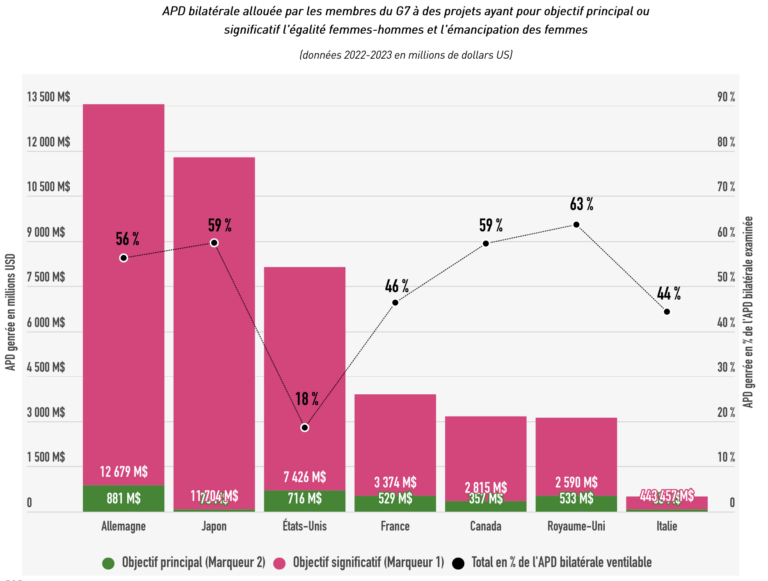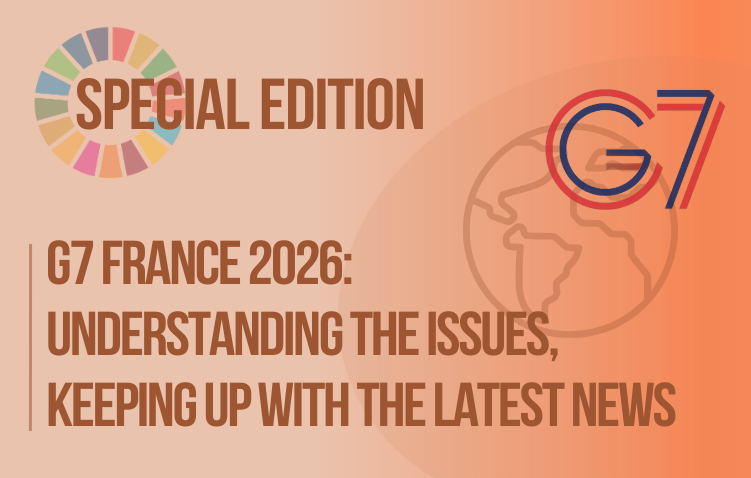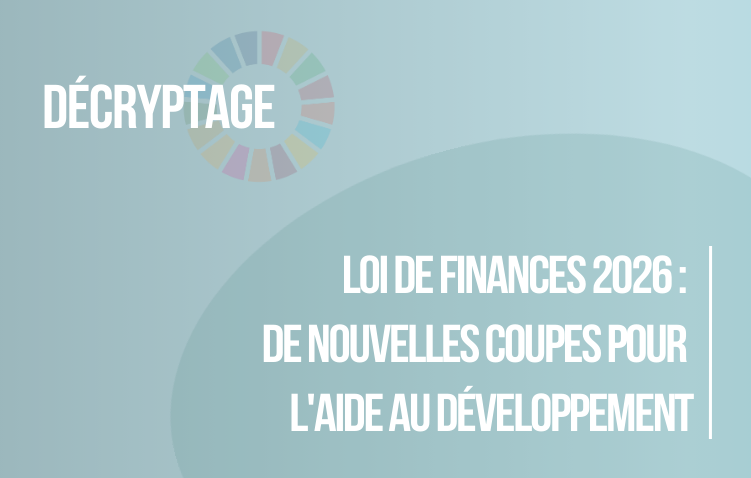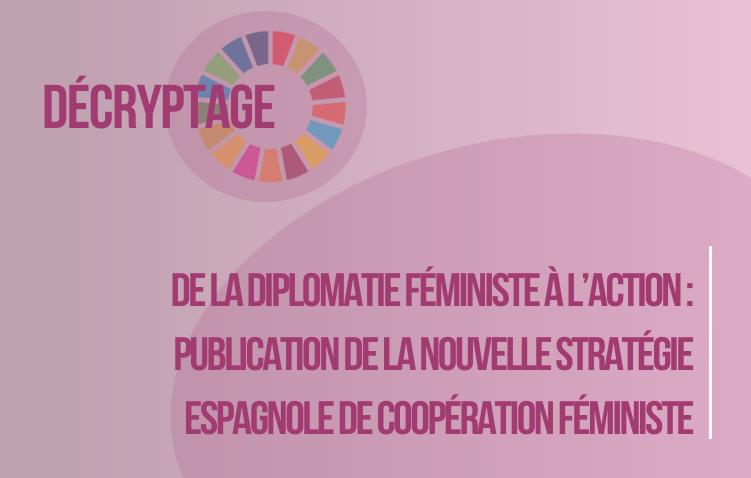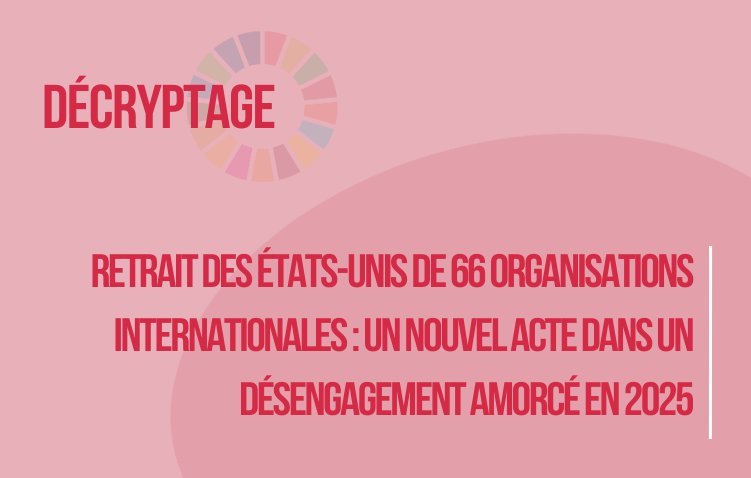3 questions to Delphine O, Ambassador and General Secretary of the Generation Equality Forum
Publié le 12/03/2025.
| As part of its special edition on the state of inequality in the world in 2025, Focus 2030 wants to put forward the stakeholders who work to help achieve gender equality on a daily basis. |
3 questions to Delphine O, Ambassador and General Secretary of the Generation Equality Forum
Focus 2030 : In 2019, France adopted a feminist foreign policy and has since launched several actions in favor of gender equality on the international stage, including co-organizing the Generation Equality Forum in 2021. Today, at least 15 countries have formally adopted a feminist foreign policy. Could you tell us what the main priorities of French feminist foreign policy are, and what concrete initiatives have been taken to promote women’s rights around the world ?
Delphine O : After announcing its adoption in 2019, France is adopting this year an International Strategy for feminist foreign policy – a reference document that defines the strategic framework, priorities and means of implementing our feminist foreign policy.
The strategy is based on five pillars :
- reaffirming our historical priorities, in particular the fight against gender-based violence and for sexual and reproductive health and rights
- strengthening feminist foreign policy in multilateral forums (G7, G20, UN, OECD, etc.) to counter the reactionary backlash
- continuing to invest in gender equality, in particular by providing financial support to feminist movements
- mainstreaming gender equality in major global issues : the fight against climate change, digital regulation, trade agreements, etc.
- and promoting a feminist approach as a prerequisite for peace and security.
To achieve these five priorities, we have adopted a new method, with inter-ministerial coordination and an ambition to transform the institutional culture internally, ensuring that all diplomats take ownership of this feminist foreign policy.
The initiatives launched since 2019 are numerous : Global Fund for survivors of conflict-related sexual violence with Dr. Mukwege, Marianne Initiative for Human Rights, Support Fund for feminist organizations (which has provided funding for more than 1,400 organizations in 73 countries, making France the world’s leading donor to feminist NGOs), and most recently, the Laboratory for Women’s Rights Online, the first multilateral platform to combat sexual and gender-based cyber-violence.
It’s also about ensuring that we integrate a gender perspective into all areas of diplomacy. For example, as part of the Artificial Intelligence Action Summit held in Paris in February, we pushed for the adoption of the first international declaration for the integration of a gender perspective in the governance, modeling and implementation of AI.
Focus 2030 : In a context marked by the rise of increasingly organized and funded conservative movements targeting the rights of women and sexual minorities, how can countries pursuing a feminist foreign policy structure an effective diplomatic response ? What alliances and strategies can be developed to ensure that these rights are protected and strengthened in the face of such opposition ?
Delphine O : Above all, it’s about building coalitions of like-minded players, on every continent, to block the backlash. The diplomatic response to the backlash from conservative countries in multilateral forums, to their systematic attempts to unravel the “agreed language” of UN resolutions, requires better anticipation in negotiations, and the establishment of strong stances in the face of obstruction/red lines from the opposing parties. There is also a need for more training for diplomats at all levels, especially in permanent missions to international organizations (New York, Geneva, etc.), including diplomats who are not used to negotiating gender issues.
The response is also based on close consultation with our “allies” (those we know we can count on to defend women’s rights and with whom we regularly vote at the UN), but also on seeking allies among other, perhaps less obvious, countries. Over the years, we have patiently built relationships with small and medium-sized countries that have no interest in seeing the multilateral system or the existing set of international texts on women’s rights collapse. We continue to strengthen and diversify these alliances as governments and policies change in order to ensure a majority in international forums.
Focus 2030 : After Mexico, Germany and the Netherlands, France is about to host an international conference on feminist foreign policy. What are the major challenges and expected outcomes ? How can we maintain a strong international mobilization at a time when certain States, historically committed to women’s rights, now seem to be disengaging under the combined effect of changes in political orientation and budget cuts affecting funding for gender equality worldwide ?
Delphine O : France will host the fourth edition of the Conference on Feminist Foreign Policy, following Germany (2022), the Netherlands (2023) and Mexico (2024). These conferences are essential moments of mobilization for women’s rights, bringing together far more than the fifteen or so countries that have officially adopted feminist diplomacy. More than 700 participants attended the conference in The Hague, while 40 government delegations attended the conference in Mexico City.
In an international context of setbacks for women’s rights and unprecedented attacks on the international texts that protect them, France intends to make this 4th Conference a platform for mobilization and advocacy to give visibility to countries and stakeholders committed to gender equality and multilateralism. Together with the participating countries, we will “push back against the push back” with a strong voice, sending a clear signal : women’s rights are non-negotiable, and we will continue to defend the universal rights of women and girls together. We would also like to explore the possibility of stakeholders making collective commitments at the conference.
To this end, we will invite those States that have historically been committed to women’s rights, urging them to renew their political and financial commitments despite budget cuts, as well as a number of States that have been less involved in these conferences, less visible, but which nonetheless defend multilateral texts, and the progress made in recent decades.
NB : The opinions expressed in this interview do not necessarily reflect the ideas of Focus 2030.






